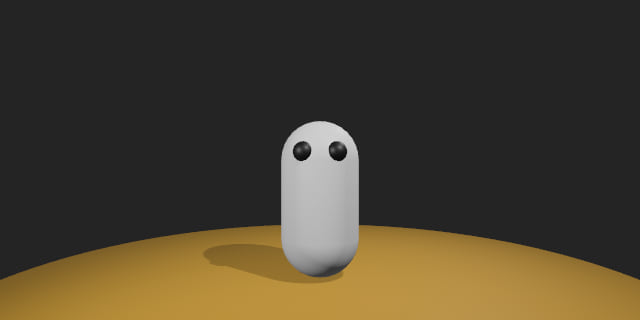12 breaking releases
Uses new Rust 2024
| 0.13.0 | Apr 25, 2025 |
|---|---|
| 0.12.0 | Nov 30, 2024 |
| 0.11.0 | Jul 4, 2024 |
| 0.10.0 | Feb 17, 2024 |
| 0.3.0 | Jul 30, 2022 |
#46 in Game dev
1,638 downloads per month
59KB
804 lines
Bevy Sequential Actions
A simple library for managing and sequencing various actions in Bevy.

An entity with a queue of repeating actions
📜 Getting Started
Plugin
The quickest way for getting started is adding the SequentialActionsPlugin to your App.
use bevy_sequential_actions::*;
fn main() {
App::new()
.add_plugins((DefaultPlugins, SequentialActionsPlugin))
.run();
}
Implementing an Action
An action is anything that implements the Action trait.
The trait contains various methods that together defines the lifecycle of an action.
From this, you can create any action that can last as long as you like,
and do as much as you like.
An entity with actions is referred to as an agent.
A simple wait action follows.
pub struct WaitAction {
duration: f32, // Seconds
current: Option<f32>, // None
}
impl Action for WaitAction {
// By default, this method is called every frame in the Last schedule.
fn is_finished(&self, agent: Entity, world: &World) -> bool {
// Determine if wait timer has reached zero.
world.get::<WaitTimer>(agent).unwrap().0 <= 0.0
}
// This method is called when an action is started.
fn on_start(&mut self, agent: Entity, world: &mut World) -> bool {
// Take current time (if paused), or use full duration.
let duration = self.current.take().unwrap_or(self.duration);
// Run the wait timer system on the agent.
world.entity_mut(agent).insert(WaitTimer(duration));
// Is action already finished?
// Returning true here will immediately advance the action queue.
self.is_finished(agent, world)
}
// This method is called when an action is stopped.
fn on_stop(&mut self, agent: Option<Entity>, world: &mut World, reason: StopReason) {
// Do nothing if agent has been despawned.
let Some(agent) = agent else { return };
// Take the wait timer component from the agent.
let wait_timer = world.entity_mut(agent).take::<WaitTimer>();
// Store current time when paused.
if reason == StopReason::Paused {
self.current = Some(wait_timer.unwrap().0);
}
}
// Optional. This method is called when an action is added to the queue.
fn on_add(&mut self, agent: Entity, world: &mut World) {}
// Optional. This method is called when an action is removed from the queue.
fn on_remove(&mut self, agent: Option<Entity>, world: &mut World) {}
// Optional. The last method that is called with full ownership.
fn on_drop(self: Box<Self>, agent: Option<Entity>, world: &mut World, reason: DropReason) {}
}
#[derive(Component)]
struct WaitTimer(f32);
fn wait_system(mut wait_timer_q: Query<&mut WaitTimer>, time: Res<Time>) {
for mut wait_timer in &mut wait_timer_q {
wait_timer.0 -= time.delta_seconds();
}
}
Modifying Actions
Actions can be added to any Entity with the SequentialActions marker component.
Adding and modifying actions is done through the actions(agent)
extension method implemented for both Commands and World.
See the ModifyActions trait for available methods.
fn setup(mut commands: Commands) {
// Spawn entity with the marker component
let agent = commands.spawn(SequentialActions).id();
commands
.actions(agent)
// Add a single action
.add(action_a)
// Add more actions with a tuple
.add((action_b, action_c))
// Add a collection of actions
.add(actions![action_d, action_e, action_f])
// Add an anonymous action with a closure
.add(|_agent, world: &mut World| -> bool {
// on_start
world.send_event(AppExit::Success);
true
});
}
⚠️ Warning
Since you are given a mutable World, you can in practice do anything.
Depending on what you do, the logic for advancing the action queue might not work properly.
There are a few things you should keep in mind:
-
If you want to despawn an
agentas an action, this should be done inon_start. -
The
executeandnextmethods should not be used, as that will immediately advance the action queue while inside any of the trait methods. Instead, you should returntrueinon_start. -
When adding new actions, you should set the
startproperty tofalse. Otherwise, you will effectively callexecutewhich, again, should not be used. At worst, you will cause a stack overflow if the action adds itself.fn on_start(&mut self, agent: Entity, world: &mut World) -> bool { world .actions(agent) .start(false) // Do not start next action .add((action_a, action_b, action_c)); // Immediately advance the action queue true }
📎 Examples
See the examples for more usage.
Each example can be run with cargo run --example <example>.
| Example | Description |
|---|---|
basic |
Basic usage of the library. |
pause |
Pause and resume an action. |
repeat |
Create an action that repeats. |
parallel |
Create actions that run in parallel. |
sequence |
Create action with a sequence of actions. |
custom |
Custom plugin with different schedules and action queue advancement. |
📌 Compatibility
| bevy | bevy-sequential-actions |
|---|---|
| 0.16 | 0.13 |
| 0.15 | 0.12 |
| 0.14 | 0.11 |
| 0.13 | 0.10 |
| 0.12 | 0.9 |
| 0.11 | 0.8 |
| 0.10 | 0.7 |
| 0.9 | 0.6 |
| 0.8 | 0.3 – 0.5 |
| 0.7 | 0.1 – 0.2 |
🔖 License
bevy-sequential-actions is dual-licensed under either
- MIT License (LICENSE-MIT or http://opensource.org/licenses/MIT)
- Apache License, Version 2.0 (LICENSE-APACHE or http://www.apache.org/licenses/LICENSE-2.0)
at your option.
Dependencies
~16–24MB
~348K SLoC